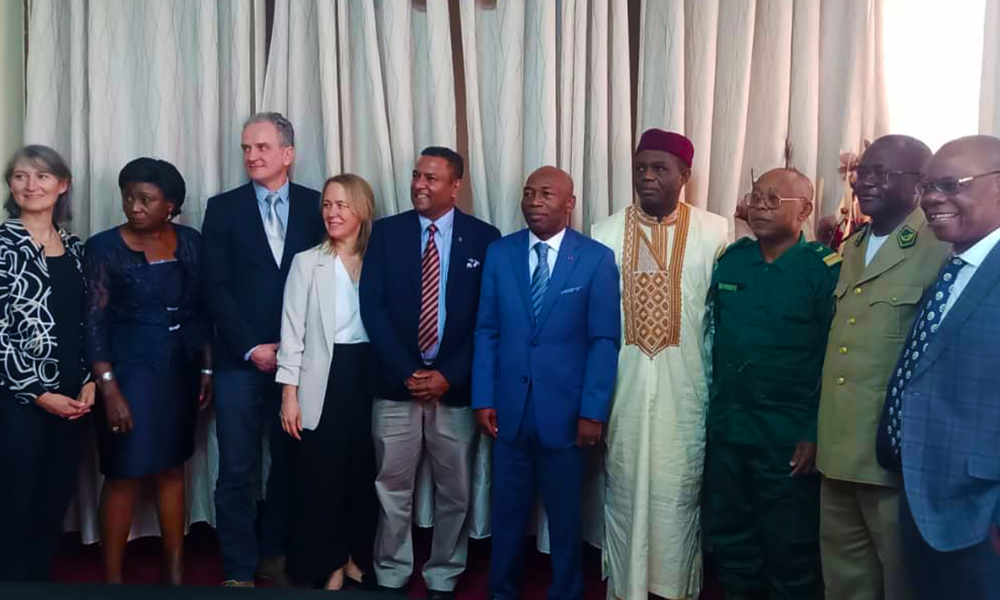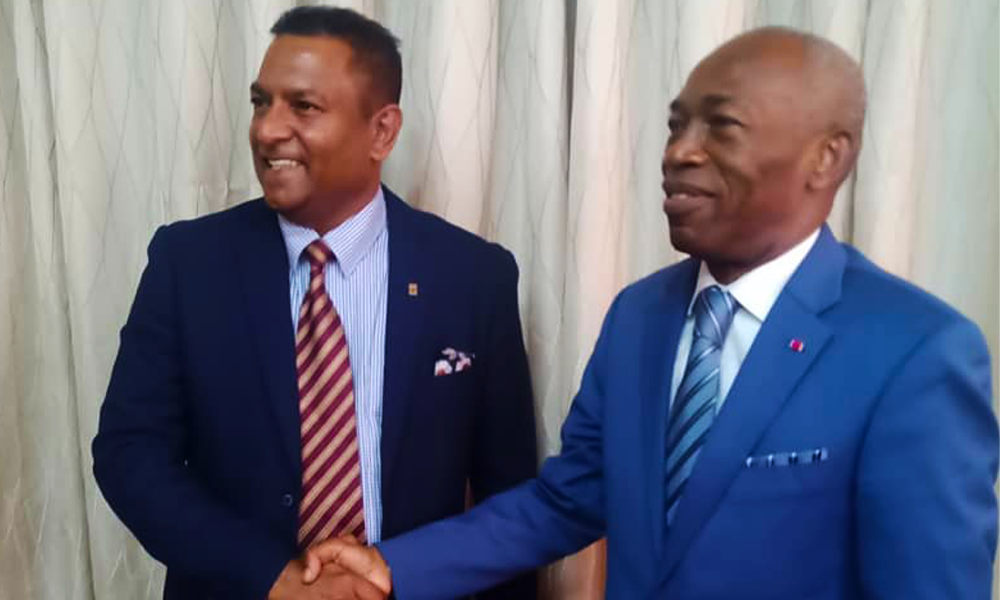
It was at the conference room of the Ministry of Forestry and Wildlife that Minister Jules Doret Ndongo met with the World Wildlife Fund (WWF) delegation, led by PRASANNA De Silva, Executive Director, Country Offices Management and Mrs Clotilde NGOMBA, Cameroon Country Director.
Flanked by the Secretary General and some directors, the Head of the Ministerial Department of Forestry and Wildlife began by congratulating the historic and privileged partnership between WWF and Cameroon, before reviewing all the previous projects on which they have collaborated, such as; code of conduct for ecoguards vis-à-vis local and indigenous populations, the Memorandum of Understanding signed between WWF and the Pygmy Group of the ASBABUK association (Association Sanguia Baka Buma'a Kpodè) in Bertoua. This agreement covered the free movement of Baka pygmies in the Boumbabek, Lobéké and part of Nki National Parks, and gave indigenous peoples the right to participate in the management of these newly-created protected areas.
What was special about this meeting was that it not only provided an opportunity to briefly review all the previous projects, but also to discuss current and future projects, and to highlight the prospects, particularly in terms of the need to involve the Cameroonian side from the very beginning of each project, so that there can be capacity building and even a mutual transfer of expertise and technology.
In the course of the audience, the need was raised for WWF to work on the Sahelian part of the national territory to get out of the forest for a while, as well as a major project in the pipeline, based on alternatives in research and the implementation of financing in the Forestry and Wildlife sub-sectors, starting from old models to come up with something new that could benefit the tripartite comprising the Congo Basin countries, WWF and COMIFAC. Various sites were mentioned, such as the Campo Ma'an National Park and Mambele (Lobeke National Park), sites that are constantly frequented by wildlife because it is their natural living space, but also by local and indigenous populations, which inevitably creates conflict between humans and wildlife. The problem is that of human-wildlife coexistence, because incidents of plantation devastation and even repeated attacks on humans are frequent.
At the end of the meeting, a message of hope was expressed to the Minister of Forestry and Wildlife to organise, in the coming weeks, a nationwide discussion to find not only more solutions to problems raised, but also to mature future projects.

© 2021 MINFOF. All rights reserved| Designed by CI MINFOF